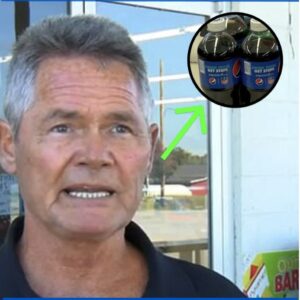Alabama Store Owner Boycotts Pepsi Over NFL Logo Amid Anthem Protest Debate

Back in October 2018, a small-town grocery store in Athens, Alabama, sparked national attention after its owner made a bold decision rooted in personal convictions. Phillip Stewart, who runs S&Z Grocery—a locally cherished shop with deep ties to its community—chose to stop selling specific Pepsi products. Not because of a safety issue or shortage, but because of what was printed on the bottle labels: the NFL logo.
The controversy stemmed from the National Football League’s ongoing debate at the time surrounding players kneeling during the national anthem. Many athletes had taken a knee as a peaceful protest against racial inequality and police violence. While the movement gained support from some corners of the public, others viewed the act as an insult to the American flag and military service. Stewart belonged to the latter group.
“I just can’t support the NFL while they allow what I see as disrespect,” Stewart said in an interview. “Selling a product carrying their logo goes against my beliefs.”
His stance wasn’t quiet. In a Facebook post that quickly made waves, Stewart publicly announced that his store would stop carrying 20-ounce bottles of Pepsi and Diet Pepsi that featured the NFL emblem, stating clearly that it was a matter of principle—not profit.
“This might cost me some sales, but I’m standing firm,” his post read. “S&Z won’t be selling those particular bottles while they bear the NFL branding. I won’t compromise my values just to make money while some athletes are kneeling during the anthem. That’s not something I can support.”
The decision was met with widespread approval from like-minded locals and others across social media, who praised Stewart for standing up for what he believed in. Many commenters expressed appreciation for his willingness to sacrifice earnings to take a stand.
Still, Stewart clarified that he didn’t oppose the core message of the players’ protests—only the manner in which it was carried out. “I understand the cause,” he noted. “I just think there are better ways to bring awareness than kneeling during the national anthem.”
His boycott wasn’t a blanket ban on all Pepsi beverages. Only the bottles tied to the NFL promotion were pulled. According to the store’s supplier, those bottles would continue to carry the logo at least through the Super Bowl, potentially extending the temporary ban for several months.
Images of Stewart’s Facebook post and the removed Pepsi display soon circulated far beyond Athens, entering the broader national conversation about patriotism, protest, and consumer activism. Supporters hailed him as a symbol of integrity. Others questioned whether such gestures helped or hindered the complex conversation around social justice and national pride.
Ultimately, Stewart’s choice reflected the tense cultural crossroads America was facing at the time—a moment when symbols like the anthem, the flag, and a soft drink label could carry deep political meaning. Whether celebrated or criticized, his move underscored a powerful idea: that both protest and response are acts of expression in a democracy.